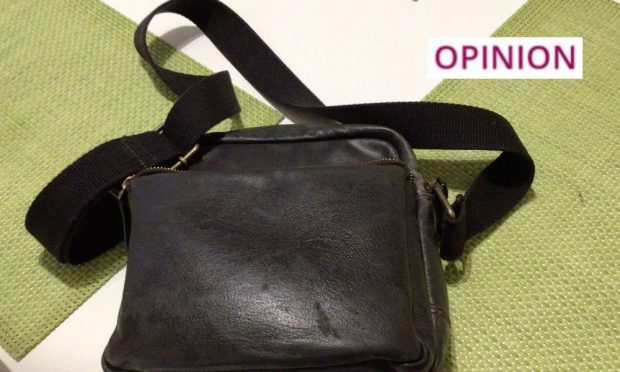Since everyone’s going all Shakespearean on us at the moment, you can hardly move for quotable quotes, punning headlines and bad jokes.
Oor Wullie had a rare eye for a dramatic tale of tragedy, romance and villainy but he was a rotten comedian, except for Much Ado About Nothing. And even it had its share of terrible wordplay and cringeworthy character set-ups, a bit like The Office with codpieces.
This week, I have been pondering on the continuing relevance of that great observation from Romeo & Juliet: “What’s in a name?” Which saying goes on to posit the view that: “A rose by any other name would smell as sweet.”
I don’t know whether it’s being inundated with contradictory data about the European Union referendum or the BBC’s blanket coverage of the Chelsea Flower Show but I find myself taking issue with this particular bit of wit and wisdom from the Swan of Avon. It seems to me that names can tell you a helluva lot if you know where to look.
The name of the rose, to plagiarise the late Umberto Eco, is simple enough when it’s referring to the species and since most cultivars are named after people, they run the gamut from Agatha Christie to Zephirine Drouhin and all points in between. Nothing too controversial there as people don’t tend to name exquisite blooms after Vlad the Impaler or Adolf Hitler, at least not if they want to move any level of stock down the garden centre. But somehow I don’t think people would feel quite the same about the rose, even if it looked and smelled like a rose (is a rose, is a rose, as Gertrude Stein once sagely wrote), if it was called a corpse plant or a skunk cabbage. Even Latin can’t hide the off-putting nature of something like ilex vomitoria, scrophularia aquatica, lobelia siphilitica or amorphophallus titanus. These, it will come as no surprise, are very rarely referred to in the advice dished out on Gardener’s Question Time.
Look at the hole that that blameless Alan Titchmarsh dug for himself recently when he mentioned bastard trenching (technical term).
My sister-in-law, a woman of delicate sensibilities, cannot bring herself to talk about the weed sticky willie and refers to it as “adhesive William.” Lord knows what she would make of trillium erectum (aka stinking Willie) or plain old knobweed.
Mind your own business springs unbidden to the mind. Which is actually the name of a creeping perennial which, by stretching the imagination a little, sounds uncannily like a description of several currently prominent public figures.
As if the world of nature wasn’t treacherous enough, the Brexit campaign thus far (and we’ve still got a month to go) has elevated name-calling to an art form.
I heard a quite magnificent remark from a Scottish campaigner on the Leave side on the radio last week about how we should judge those who pontificate about this vexed question by the company they keep. Be careful what you wish for, sir, I thought, without giving away my own leanings on this issue.
Brexit may sound like a kind of slightly fousty breakfast cereal but sometimes the company you keep, however unintentional, can be a wonderful source of spirit-nourishing satire. And Lord knows, we all need a laugh at the moment.
The naming of cats was said by T S Eliot to be a serious matter but the animal kingdom may have much to teach us when it comes to the laws of unintended consequences.
My god-daughter and her partner once kept a couple of Russian hamsters as pets. On a visit to the vet, the receptionist came out and called for the animal patient using its name and the surname of the owner, ideal for those of us sad anthropomorphists who think of our pets as little people (without resorting to dressing them in any form of attire that bears a relation to human clothing). Boris Dixon, she trilled. Eyebrows were raised in the waiting room.
My god-daughter, a feisty gel, felt it was beneath her to explain that this was not a political statement – had that been the case she might have possessed a couple of toothy rodents called Gove and IDS – in spite of the fact that she had another one at home named Vladimir.
How you manage to have two pets named after such diametrically opposed but equally scarily ridiculous public figures as Messrs Johnson and Putin, I do not know but then my god-daughter is named after me, which probably explains quite a lot. And perhaps her choice of address for her exotic companions is more of an unconscious comment on current affairs that she might realise.
She and her partner are actually getting a dog soon, a black flat-coated retriever if my spies inform me correctly, which should be just about as cute and loveable as it’s possible for a canine to be.
But if they call it Nigel, I’m leaving the country. And if they call it Donald, I’m applying for Tim Peake’s job.










